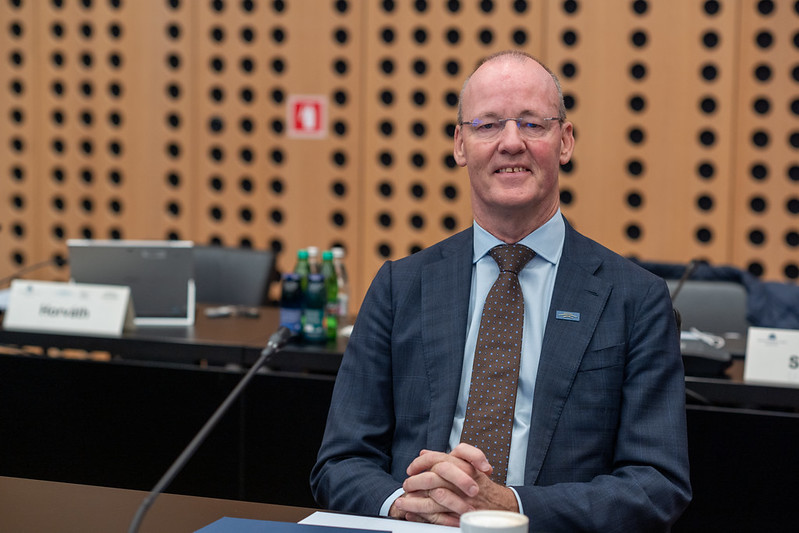ECB’s Knot: Disinflation ‘Remarkably Fast and, to Date, Relatively Painless’
28 November 2024

By David Barwick – FRANKFURT (Econostream) – European Central Bank Governing Council member Klaas Knot on Thursday said that disinflation in the euro area so far had been fast and fairly straightforward.
In a speech at the Euro50 Group’s 25th anniversary at the Banque de France in Paris, Knot, who heads De Nederlandsche Bank, said that the result of the ECB’s current three-pillar, data-dependent approach was ‘a remarkably fast and, to date, relatively painless process of disinflation.’
‘As such, monetary policy today is gradually winding down some of the restrictions, based on the same data-dependent approach’, he said.
Although the separation principle traditionally distinguished between the ECB’s monetary policy stance and financial stability, it made sense for the policy stance to be distinct from the safeguarding of monetary transmission (a ‘separation principle 2.0’), given that the instruments involved in the two functions did not always point in the same direction, he said.
In this respect, Knot noted that the ECB came up with its transmission protection instrument (TPI) precisely when it was initiating the winding down of asset purchases. The TPI was ‘a good example of separating stance and transmission’, he said. ‘It has enabled us to tighten policy decisively without unwarranted increases in sovereign spreads.’
But even if two policies pointed in the same direction at a particular moment, at another moment that could cease to be the case, he said.
For an arsenal of policy instruments that respected separation in terms of the stance and transmission, there would be ‘less scope for hybrid instruments, outside of the ELB’, he said.
Nonetheless, ‘stabilisation tools will remain important elements of our toolkit’, he said. ‘We might need them again to contain market dysfunction and support monetary transmission.’
